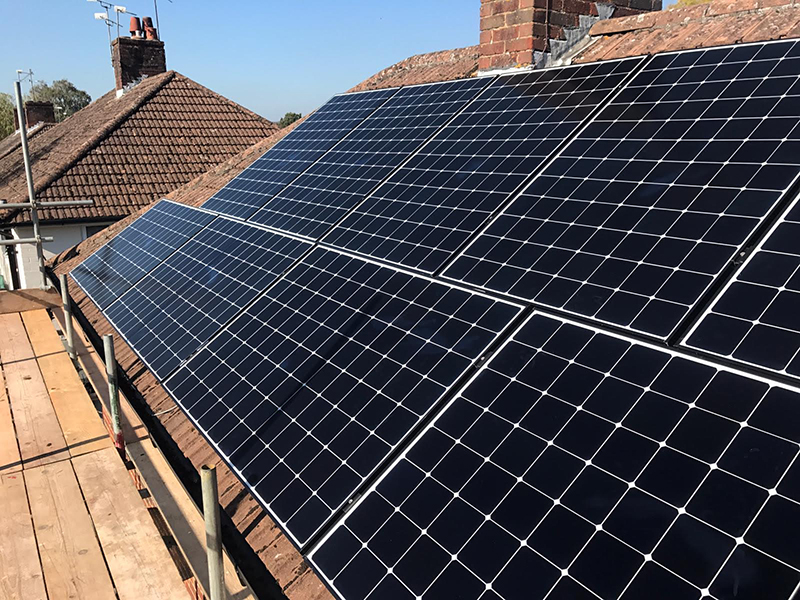For businesses in Marbella, having a strong online presence is crucial to attracting local customers and tourists in the highly competitive digital landscape. One of the key factors that influence a website’s search engine rankings is Google’s ever-evolving algorithm. Google frequently updates its algorithm to deliver the most relevant and valuable results to users, which can significantly impact a website’s visibility in search results. As a result, businesses in Marbella must stay up-to-date with the latest algorithm updates and adapt their SEO strategies to maintain a competitive edge.
In this article, written by Website Design Marbella, we will explore the importance of Google algorithm updates, understand their impact on search results, and provide valuable insights for Marbella businesses on how to navigate these updates successfully to stay ahead in the local market.
The Significance of Google Algorithm Updates:
Google algorithm updates are changes made to the search engine’s ranking system, aiming to improve the quality and relevance of search results. The updates are designed to enhance user experience by displaying more accurate and authoritative content. For businesses in Marbella, understanding these updates is vital as they directly impact search engine rankings, organic traffic, and ultimately, online visibility.
When Google releases a major algorithm update, it can cause significant fluctuations in search rankings. Some websites may experience a boost in rankings, while others might see a drop. Staying informed about these updates allows businesses to adjust their SEO strategies accordingly and ensure that their website complies with Google’s evolving criteria for ranking.
The Impact of Core Algorithm Updates:
Google releases several algorithm updates throughout the year, but core updates are the most significant. Core updates are broad and can affect a wide range of websites across various industries. They often focus on improving expertise, authoritativeness, and trustworthiness (E-A-T) of content, rewarding high-quality websites that offer valuable and reliable information to users.
For Marbella businesses, core updates present both opportunities and challenges. By focusing on producing relevant, engaging, and authoritative content, businesses can enhance their website’s E-A-T and improve search rankings. On the other hand, websites that fail to meet Google’s quality guidelines may see a decline in rankings, necessitating immediate action to address any shortcomings.
Navigating Algorithm Updates:
To navigate Google algorithm updates successfully, Marbella businesses can implement several strategies:
a. Focus on Quality Content: Prioritise creating high-quality, informative, and user-centric content that addresses the needs and queries of the target audience. Content that demonstrates expertise, authority, and trustworthiness will be rewarded in search rankings.
b. Optimise User Experience: Ensure that your website is user-friendly, easy to navigate, and mobile-responsive. A positive user experience improves engagement and reduces bounce rates, signalling to Google that your site is valuable to users.
c. Monitor Website Performance: Regularly analyse website analytics and track keyword rankings to identify any sudden changes in search visibility. This allows businesses to quickly respond to algorithm updates and make necessary adjustments.
d. Build Authoritative Backlinks: Focus on acquiring high-quality backlinks from reputable websites within your industry. Google considers backlinks as a vote of confidence in your content’s credibility.
e. Embrace Local SEO: For Marbella businesses targeting local customers and tourists, optimising for local SEO is essential. Claim and optimise your Google My Business listing and encourage positive customer reviews to enhance local search visibility.
Seek Professional Assistance:
Navigating Google algorithm updates can be challenging, especially for businesses without in-depth SEO expertise. Partnering with a reputable digital marketing agency in Marbella can provide invaluable support. A professional agency stays up-to-date with the latest algorithm changes and understands how to implement effective SEO strategies that align with Google’s guidelines.
A digital marketing agency can conduct a comprehensive SEO audit of your website, identify areas for improvement, and create a tailored SEO strategy that helps you adapt to algorithm updates. Their expertise in content creation, keyword optimisation, and link-building can significantly enhance your website’s search rankings and visibility in Marbella’s competitive market.
Google algorithm updates are an essential aspect of the ever-changing digital landscape, directly impacting the search engine rankings of websites in Marbella. Understanding the significance of these updates and staying informed about their impact is crucial for businesses to maintain a strong online presence and attract local customers and tourists. By focusing on quality content, optimising user experience, monitoring website performance, building authoritative backlinks, and embracing local SEO, businesses can successfully navigate algorithm updates and stay ahead in Marbella’s search results. Additionally, seeking professional assistance from a digital marketing agency ensures businesses can implement effective and data-driven SEO strategies to thrive in the dynamic and competitive digital marketplace of Marbella.
How do you find a good digital marketing agency in Marbella, Malaga?
Finding a good digital marketing agency in Malaga is a critical decision that can significantly impact your business’s online presence and success. To identify a reliable and skilled agency, start by conducting thorough research and exploring the options available in the Marbella area. Look for digital marketing agencies that specialise in website design and development. Check their portfolios and previous projects to assess the quality and diversity of their work. A reputable agency will showcase a range of design styles and demonstrate its ability to create visually appealing and user-friendly websites.
Client testimonials and reviews are valuable sources of information about an agency’s reputation and customer satisfaction. Positive feedback from previous clients is a strong indicator of their professionalism and the quality of their services. Additionally, consider reaching out to local businesses and professional networks for recommendations and referrals. Schedule consultations with the shortlisted agencies to discuss your specific requirements and business goals. A good website design agency in Marbella will take the time to understand your brand, target audience, and objectives to tailor their approach accordingly. By conducting thorough research and evaluations, you can find a reliable website design agency in Marbella, Malaga, that will elevate your online presence and drive success for your business.
What is a digital agency?
A digital agency is a specialised marketing firm that offers a comprehensive range of online services to help businesses thrive in the digital landscape. Digital agencies encompass a team of experts in various digital marketing disciplines, including website design and development, search engine optimisation (SEO), social media marketing, content creation, email marketing, pay-per-click (PPC) advertising, and more. The primary objective of a digital agency is to craft customised and data-driven digital strategies that drive brand visibility, increase website traffic, and generate leads or conversions for their clients.
Digital agencies play a vital role in the modern business environment, where online presence is critical for success. They stay up to date with the latest industry trends, emerging technologies, and consumer behaviour insights to design and execute effective marketing campaigns. By leveraging data analytics and insights, digital agencies target the right audience across various digital platforms, ensuring maximum reach and engagement. For businesses in Marbella, partnering with a reputable digital agency is instrumental in achieving their marketing goals. It provides access to a wide array of digital marketing expertise, allowing businesses to connect with their audience effectively and foster sustainable growth in the digital era.
What is Website Design?
Website design refers to the process of conceptualising, planning, and creating the visual and functional elements of a website to deliver an optimal user experience. It encompasses various aspects, including layout, colour schemes, typography, images, multimedia, and user interface (UI) design. The primary goal of website design is to create a visually appealing, user-friendly, and engaging online platform that offers seamless navigation and easy access to relevant information.
An effective website design goes beyond aesthetics and considers user behaviour and preferences. It involves creating a website structure that guides visitors effortlessly through the content and services offered. Mobile responsiveness is also a crucial consideration, as an increasing number of users access websites through smartphones and tablets. Professional website design is a critical component of establishing a successful online presence for businesses. It enhances their credibility, engages their target audience, and encourages conversions. By investing in a well-designed website, businesses can effectively communicate their brand message, showcase their products or services, and leave a lasting impression on visitors, ultimately driving business growth and success.
What is SEO?
SEO, or Search Engine Optimisation, is a strategic practice that aims to improve a website’s visibility and organic search rankings on search engine result pages (SERPs). The primary objective of SEO is to attract relevant and targeted organic traffic to a website, increasing brand exposure and potential conversions. SEO involves various on-page and off-page techniques that work together to improve a website’s search engine rankings.
On-page SEO focuses on optimising elements within the website itself, such as content, meta tags, and HTML structure. Keyword research plays a critical role in identifying relevant search terms that align with the target audience’s search intent. By strategically incorporating these keywords into the website’s content and meta tags, businesses can improve their relevancy to specific queries.
Off-page SEO, on the other hand, revolves around external factors that influence a website’s ranking. Backlink building, for instance, involves obtaining high-quality links from other reputable websites, signalling to search engines that the website is authoritative and trustworthy.
For businesses in Marbella, SEO is a powerful tool to compete effectively in the online market and reach the right audience. By implementing effective SEO strategies, businesses can improve their search engine rankings, attract organic traffic, and foster long-term success in the digital landscape.

